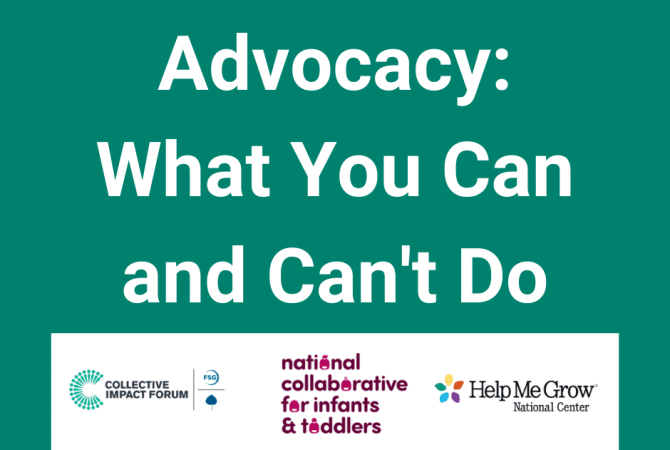If you are based in the U.S. and either working in the nonprofit sector or government, the below webinar video series were produced to help address your questions about participating in advocacy.
About this series: With new legislative sessions starting in 2024, an election season underway, and an ever-changing landscape of federal and state policies that impact our initiatives, folks want to understand the rules around advocacy activities that apply to their work. How can we engage in valuable advocacy without getting in trouble?
Because the rules differ for nonprofits and for government employees, the two below online sessions were tailored to the unique needs of U.S.-based nonprofits and government employees.
Session Lead: Both sessions were led by Allen Mattison, a lawyer who specializes in advising nonprofit organizations and others on advocacy strategies. With a particular focus on public health, Allen helps organizations understand the advocacy rules so they can craft strategies that maximize their ability to influence public policy safely.
Presenting Organizations: This two-part series was co-presented by the National Collaborative for Infants & Toddlers, Help Me Grow National Center, and the Collective Impact Forum.
Session Resources: Please find the recordings of each session below, and the related presentations and referenced resources are available at the links on the right. (Signing in is required to download resources from the Forum library.)
Nonprofit Advocacy: Getting Your Toes Up to the Line Without Going Over
Staff and board members of section 501(c)(3) organizations can learn what’s allowed and what’s not – and, more importantly, how to maximize the rules to maximize their organizations’ advocacy. Savvy organizations that understand the rules can structure their advocacy strategically. Learn to make the most of your restricted grant funds and leverage the rules to win policy change for your communities.
Note from Allen after this session:
On the webinar, I mentioned that small- to mid-sized section 501(c)(3) public charities should consider using what’s called the Section 501(h) Expenditure Test to measure their lobbying. To elect to use the 501(h) Expenditure Test, file IRS Form 5768 (a very simple, short form). If you file it, be sure to tell your accountant, so they can fill out your Form 990 Schedule C accordingly.
The 501(h) rules are helpful for small- to mid-sized groups because they provide very clear, specific definitions of lobbying, making it easier for your staff to understand whether a particular activity is lobbying or not. Importantly, these are the same definitions that foundation funders already use in your grants, meaning your staff already needs to follow those definitions to ensure compliance with grants. There are two other significant benefits: The 501(h) rules will allow the organization do to more lobbying, and it will mean that more of your advocacy will be treated as non-lobbying.
1. More lobbying – The 501(h) rules set specific dollar limits on how much a 501(c)(3) public charity may spend on lobbying. The attached spreadsheet can help you calculate the lobbying cap for your organization under the 501(h) rules. For example, an organization that spends $1 million annually on its overall program activities may spend up to $175,000 on lobbying under the 501(h) rules; under the other set of IRS lobbying rules, in comparison, the general rule of thumb is to spend no more than 3-5% on lobbying, or no more than $50,000. That’s a big difference.
2. More non-lobbying activity – As I explained in the webinar, the 501(h) rules allow you to treat lots of public communications about legislation as non-lobbying activity, if you exclude a “call to action.” But under the Insubstantial Part Test, these would be lobbying expenses.
So it’s simpler for staff to use the 501(h) definitions, and the organization can engage in far more advocacy (both lobbying and non-lobbying activity). Talk to your organization’s lawyer about whether using the 501(h) definitions is the right move for your organization.
Government Employees: Advancing the Policy Conversation
Staff in government agencies are uniquely positioned with deep expertise on key public-policy issues. But various laws and regulations restrict how they can engage in policy-change campaigns. This session will examine how government employees can safely be involved with efforts to influence policy.

